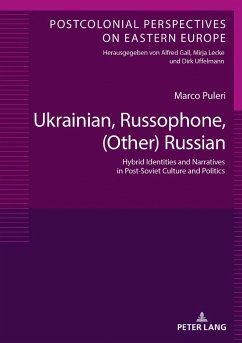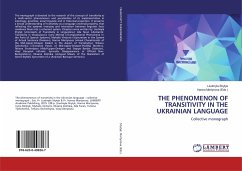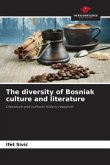What is the role and position of Russophone/Russian culture in Ukraine today? How can the dynamics of Ukrainian culture lend insight into the possibility of a global Russian culture, or multiple Russian cultures, in the contemporary world? The author responds to these questions by investi-gating the interplay between literature, politics, market, and identity in the contemporary Ukrainian cultural process (1991-2018). This book explores the contested encounters of the Russian language and culture with other languages, cultures, and traditions in the post-Soviet space, highlighting pressing contemporary issues related to-and affected by-political and social developments.
This book will be of interest to anyone working in the field of post-Soviet studies or interested in post-Soviet subjectivities, in that it makes a clear case for others to consider hybridity as an analytical tool in their studies of post-Soviet contexts. (Anna Vozna, Ab Imperio, 2020/4, 336-340)
Marco Puleri's 291-page book reframes the simplified notions of identity clashes in Ukrainian society and demystifies the perception of Ukrainian Russophonia [...] The volume can be considered as an indispensable read for both students of social sciences and humanities, as well as for researchers interested in the subject (Géza Barta, Eurasian Geography and Economics, 2021)
Marco Puleri's book is a thought-provoking study which for the first time consequently maps the Russophone literature from Ukraine as a hybrid discourse and a liminal cultural practice. (Alexander Chertenko, Ideology and Politics Journal, 2 (16), 2020: 382-391)
This book is an excellent attempt in unmasking the current situation of Ukrainian culture. This book will appeal to scholars of both Ukraine and Russia, helping to set the stage for future analysis of identity in greater post-Soviet space. (Dexter Blackwell, H-Net Reviews, July 2021).
[...] diese Arbeit einen äußerst wichtigen Beitrag zur gegenwärtigen Slawistik mit ihren Teildisziplinen dar. Neben seinen konkreten, überaus (er-) kenntnisreichen Analysen, die sowohl für RussistInnen als auch für UkrainistInnen von großem Interesse sein werden, liefert seine Arbeit dringend notwendige Impulse für die konzeptionelle Weiterentwicklung, ja vielleicht sogar Neuausrichtung der zukünftigen Slawistik im Allgemeinen und der Russistik im Besonderen. (Miriam Finkelstein, Anzeiger für Slavische Philologie, (XLVII) 2019, 187-196)
A rendere originale e pionieristico questo contributo sono non solo l'oggetto di studi e la cospicua mole di letteratura specialistica con cui intraprende un proficuo dialogo critico, bensì anche il fatto di fornire una prospettiva sui più recenti sviluppi socioculturali in Ucraina dal punto di vista degli intellettuali russofoni e della loro produzione letteraria; il volume costituisce pertanto una lettura che risulterà assai utile non solo per chi si interessi di Ucraina, ma per chiunque voglia conoscere meglio le complesse sfaccettature della realtà culturale dei paesi post-sovietici (Fabio De Leonardis, Nazioni e regioni, 16, 2020, 76-78).
Marco Puleri's 291-page book reframes the simplified notions of identity clashes in Ukrainian society and demystifies the perception of Ukrainian Russophonia [...] The volume can be considered as an indispensable read for both students of social sciences and humanities, as well as for researchers interested in the subject (Géza Barta, Eurasian Geography and Economics, 2021)
Marco Puleri's book is a thought-provoking study which for the first time consequently maps the Russophone literature from Ukraine as a hybrid discourse and a liminal cultural practice. (Alexander Chertenko, Ideology and Politics Journal, 2 (16), 2020: 382-391)
This book is an excellent attempt in unmasking the current situation of Ukrainian culture. This book will appeal to scholars of both Ukraine and Russia, helping to set the stage for future analysis of identity in greater post-Soviet space. (Dexter Blackwell, H-Net Reviews, July 2021).
[...] diese Arbeit einen äußerst wichtigen Beitrag zur gegenwärtigen Slawistik mit ihren Teildisziplinen dar. Neben seinen konkreten, überaus (er-) kenntnisreichen Analysen, die sowohl für RussistInnen als auch für UkrainistInnen von großem Interesse sein werden, liefert seine Arbeit dringend notwendige Impulse für die konzeptionelle Weiterentwicklung, ja vielleicht sogar Neuausrichtung der zukünftigen Slawistik im Allgemeinen und der Russistik im Besonderen. (Miriam Finkelstein, Anzeiger für Slavische Philologie, (XLVII) 2019, 187-196)
A rendere originale e pionieristico questo contributo sono non solo l'oggetto di studi e la cospicua mole di letteratura specialistica con cui intraprende un proficuo dialogo critico, bensì anche il fatto di fornire una prospettiva sui più recenti sviluppi socioculturali in Ucraina dal punto di vista degli intellettuali russofoni e della loro produzione letteraria; il volume costituisce pertanto una lettura che risulterà assai utile non solo per chi si interessi di Ucraina, ma per chiunque voglia conoscere meglio le complesse sfaccettature della realtà culturale dei paesi post-sovietici (Fabio De Leonardis, Nazioni e regioni, 16, 2020, 76-78).








